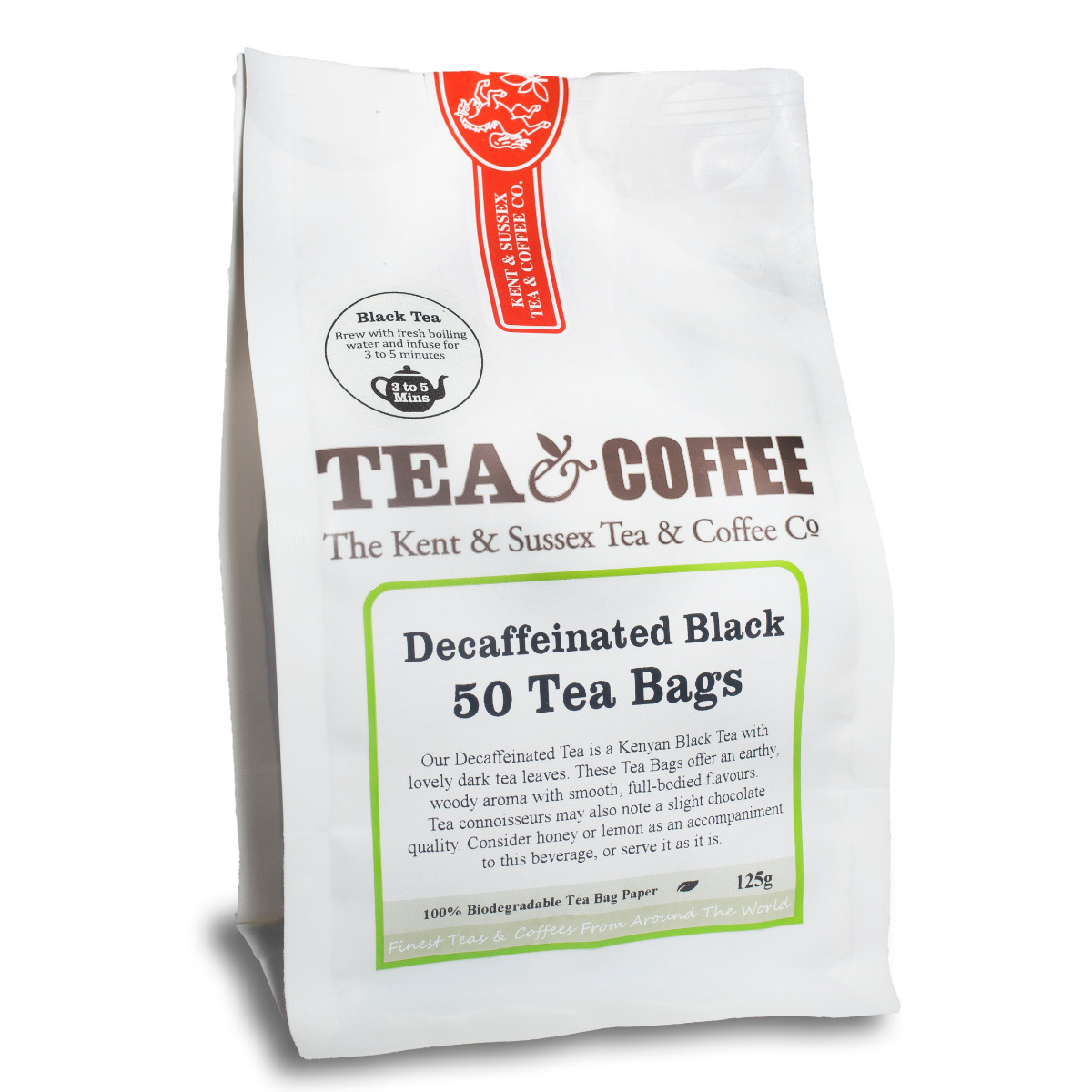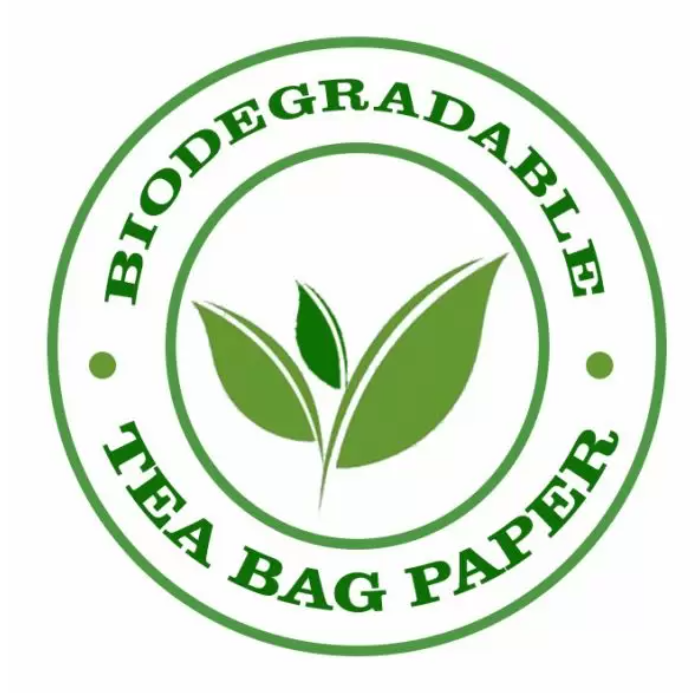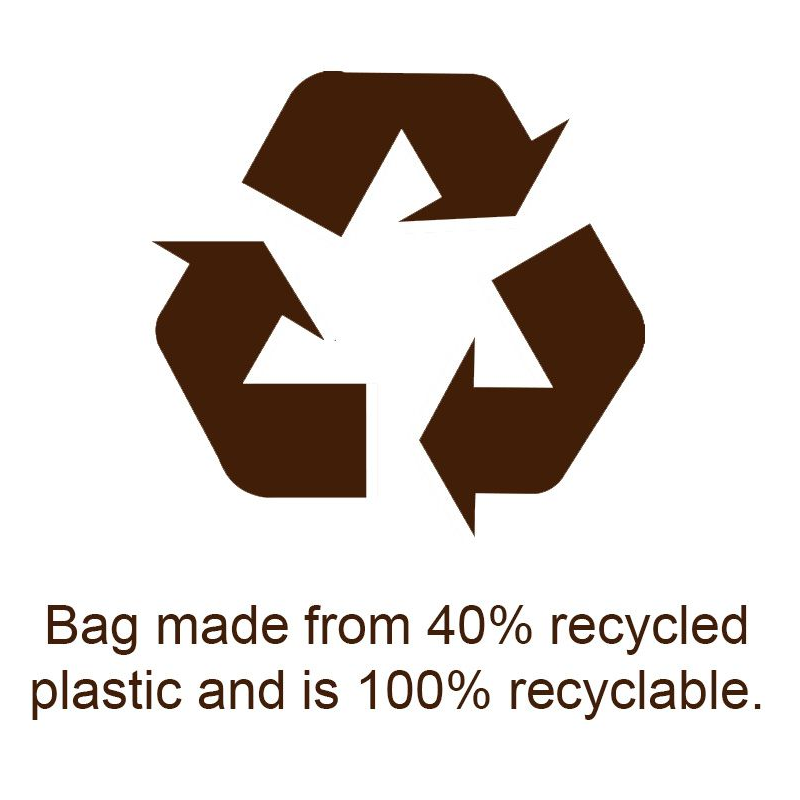About Product
-
Product Description
Our Decaffeinated Black Tea Bags undergo the safest and most efficient process of decaffeination. This is called the Carbon Dioxide method, which uses pressurised CO2 to extract the small molecules found in this Black Kenya Tea.
Best of all, this method leaves the flavour molecules almost entirely intact. It ultimately extracts 98% of caffeine, which is the best result of any Decaffeinated Tea. This makes it an excellent choice for those who’re caffeine-sensitive; or even just for those who’re looking to cut down.
What is Decaffeination?
Decaffeination refers to the process of removing caffeine from Tea, as well as Coffee. Here at The Kent and Sussex Tea and Coffee Company, we use only the two most natural methods: the CO2 process and the water process.
Other companies, however, may use less organic methods such as the Methylene Chloride process. This process uses Methylene Chloride as an extracting solvent. It has garnered a significant amount of criticism in recent years, and we’re proud not to use it.
A similar method uses Ethyl Acetate, a natural chemical found in many fruits, as an extracting solvent. Again, The Kent and Sussex Tea and Coffee Company do not use this method because of its widespread criticism. We want only what’s best for our customers, after all.
History of Decaf Tea
A German Coffee merchant named Ludwig Roselius first discovered the process of decaffeination in 1905. At the time, he used benzene, a potentially toxic hydrocarbon, to remove caffeine from pre-moistened green Coffee beans. Suffice to say; no one uses this method anymore!
Nevertheless, Roselius’ experiments gave rise to a new market. As we all know, it eventually kick-started a global phenomenon. Today, millions of people around the world now drink decaffeinated Tea or Coffee.
Make the Change to Non Plastic Tea Bags
Micro plastic in Tea Bags has come to the attention of many in recent years. This is because, according to the latest evidence, they cause significant damage to our environment and might even affect our own health.
The answer is simple. Step away from Plastic Tea Bags Microplastics and instead opt for our new-introduced Plastic Free Tea Bags.
Although technically classified as a “bioplastic,” these pockets of goodness do much to support mother nature. We create them using a combination of wood pulp and vegetable starch, thus also making them biodegradable Tea Bags.
So, if you’re wondering “can you recycle Tea Bags?,” the answer is “yes” when you buy from The Kent and Sussex Tea and Coffee Company.
Useful Information
Type of Tea: Decaf Black Tea.
Origin: Kenya, East Africa.
Brewing Instructions: Brew using freshly boiled water. Infuse for 3 to 5 minutes.
How to Serve: Some add milk; some add sugar; some add honey or lemon. Most, however, choose to enjoy this Tea served black!
Tasting Notes: Decaffeinated Black Tea Bags offer earthy, woody aromas with smooth, full-bodied flavours. Tea connoisseurs may also note a slight chocolate quality.
Colour in Cup: Coppery liquor with amber highlights, light in tone.
Caffeine in Tea Advice
NHS Choices recommends that pregnant women do not exceed more than 200 mg of caffeine per day. This is the equivalent of two cups of Coffee. These Decaffeinated Tea Bags, meanwhile, can keep one well within that bracket.
Furthermore, Decaffeinated Teas contain almost zero calories or fat when consumed without milk, cream or sweeteners. This is according to the USDA Nutrient Database.
-
Delivery Information
We offer reliable delivery services through Royal Mail to ensure that your orders reach you on time.
Here are the main points you should be aware of:
- Standard UK Delivery: £3.95 excluding delivery charge.
- Delivery Times: Orders are processed and dispatched within 2-5 working days but they may take longer during busy times. It is worth noting that all our orders are packed by hand in order to maintain the quality.
- Free Delivery: We are delighted to provide free shipping for UK orders over £35*. Moreover, customers from Europe can enjoy free shipping for any purchase above €75*. Furthermore, we offer free delivery in the USA for all purchases exceeding $125*. Please note terms and conditions may apply.
- Tracking: When your package is sent you will receive a tracking number via email so as to keep tabs of its progress.
International Shipping
We do ship worldwide meaning our products can be accessed by anyone around the world.
Here are some important details:
- Delivery Times: International deliveries vary based on destination, generally taking between 7-14 working days.
- Shipping Costs: International shipping costs are calculated at checkout based on your location and weight of your order. View full delivery charges for your location.
- Customs and Import Duties: Remember customs or import duties may exist depending on regulations in your country; these charges are borne by the customer.
Returns Policy
Your satisfaction is our top priority, however if for any reasons you’re not completely happy with your purchase, simply follow our returns procedure:
- Eligibility: Items returned within 30 days of receipt must remain unopened and in their original condition.
- Process: In order to return an item contact our customer service department using your unique order number after which detailed instructions will be given concerning returning them back to us securely.
- Refunds: Our aim is to refund you within 5-7 working days upon successful reception of returned goods. The refund amount will be credited to your original payment method.
For any other Enquiries or help please contact our Customer Support Team always at your service.
-
Product Reviews

 Loose Leaf Tea
Loose Leaf Tea Pyramids
Pyramids Tea Bags
Tea Bags Africa
Africa Assam
Assam Ceylon
Ceylon Chinese
Chinese Darjeeling
Darjeeling European
European Indian
Indian Japan
Japan Nepal
Nepal South East Asia
South East Asia Ayurveda Tea
Ayurveda Tea Black Tea
Black Tea Chai Tea
Chai Tea Flowering Tea
Flowering Tea Fruit Tisanes
Fruit Tisanes Green Tea
Green Tea Herbal Tea
Herbal Tea Matcha Tea
Matcha Tea Oolong Tea
Oolong Tea Organic Tea
Organic Tea Pu erh Tea
Pu erh Tea Rooibos Tea
Rooibos Tea White Tea
White Tea Asian Coffee
Asian Coffee Caribbean Coffee
Caribbean Coffee Central American Coffee
Central American Coffee South American Coffee
South American Coffee Coffee Blends
Coffee Blends Decaffeinated Coffee
Decaffeinated Coffee Espresso Coffee
Espresso Coffee Ethically Sourced Coffee
Ethically Sourced Coffee Flavoured Coffee
Flavoured Coffee Organic Coffee
Organic Coffee Single Origin Coffee
Single Origin Coffee Chocolate 1
Chocolate 1 Chocolate 2
Chocolate 2 Chocolate 3
Chocolate 3 Chocolate 4
Chocolate 4 Chocolate 5
Chocolate 5 Chocolate 6
Chocolate 6 Chocolate 7
Chocolate 7 Chocolate 8
Chocolate 8 Chocolate 9
Chocolate 9 Loose Tea Filters
Loose Tea Filters Tea Accessories
Tea Accessories Tea Bricks
Tea Bricks Tea Caddies
Tea Caddies Tea Caddy Spoons
Tea Caddy Spoons Tea Gift Ideas
Tea Gift Ideas Tea Infusers
Tea Infusers Tea Strainers
Tea Strainers




